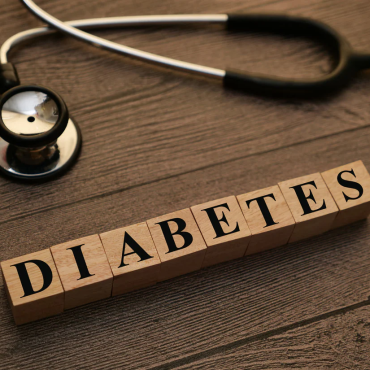Certain research revealed that people who consistently have bad sleep are more likely to have diabetes. Studies also suggest that sleep can affect an individual’s blood sugar level. Lack of sleep increases the chance of an increase in blood sugar levels and the risk of diabetic issues. Disturb sleep or lack of sleep is one of the diabetes symptoms that require attention to control and manage it. Disturbed sleep due to diabetes is also known as diabetes insomnia.
Diabetes is a chronic medical condition characterized by high blood sugar levels (glucose). It occurs when the body either doesn’t produce enough insulin, a hormone that regulates blood sugar, or can’t effectively use the insulin it produces. Types of diabetes include type 1 diabetes, type 2 diabetes, gestational diabetes, other specific diabetes (Including conditions like monogenic diabetes (caused by a mutation in a single gene), and secondary diabetes (resulting from other medical conditions or medications)).
Some common high blood sugar symptoms are lack of sleep, increased thirst and urination, unexplained weight loss, fatigue, blurred vision, slow healing of wounds, and frequent infections.
Long-term uncontrolled diabetes can lead to serious complications, including heart disease, kidney damage, eye problems (retinopathy), nerve damage (neuropathy), and foot problems.
Blood sugar and sleep problems
Everyone requires good sleep, and it becomes more important if you have signs of type 2 diabetes. Sleep and diabetes type 2 are closely connected. The quality of your sleep greatly impacts your sugar levels, and your blood sugar levels can affect the quality of your sleep. So, the question arises: how can you get a good sound sleep? Let’s understand the link between sleep and type 2 diabetes and help you know about diabetes insomnia treatment.
A study suggests that insufficient sleep can directly impact your blood sugar levels. In fact, according to Greg Faiman, an endocrinologist in Cleveland, sleep is equally essential as nutrition and exercise. Not getting adequate sleep will make your body release a hormone called cortisol. This hormone reduces insulin resistance and increases the sugar level in the bloodstream.
Do not only look for the best sleeping pills for diabetics; consult a doctor for a thorough checkup to identify the main reasons for the sleeping problem a patient may be experiencing. The signs of diabetes in men may differ from the symptoms of type 2 diabetes in women. Do not hesitate to speak to your doctor about your health concerns and know the reasons for type 2 diabetes causes you.
Hyperglycemia or high blood sugar
Sleeplessness and restlessness can affect your mood and energy. It is a form of chronic stress on the body. Such stress on your body may result in high blood glucose levels or hyperglycemia. When the sugar level is high in your bloodstream, your kidneys try to eliminate it by removing it from the body through urination. The urge to get out of bed and go to the bathroom all night results in inconsistent sleep patterns. This can also disturb your sleep by waking you up thirsty. Hyperglycemia may also cause a feeling of warmness and irritability the whole night.
Hypoglycemia or low blood sugar
Hypoglycemia or low blood sugar when you develop, you may also wake up during the night. Our body cells also require sugar to function properly. Sugar is also the main source of energy. Too low sugar levels can cause a variety of health issues within your central nervous system, which can include dizziness, sweating, blurred vision, nervousness, irritation, confusion, restlessness, nightmares, sudden hunger, chills, weakness, headache, tingling or numbness in the mouth, anxiousness, sleepwalking.
Check your glucose levels if you wake up with these symptoms at night. A drop in blood glucose levels can cause the release of hormones that help regulate glucose levels. Such hormones include cortisol, glucagon, growth hormone, and adrenaline. These hormones stimulate the brain and are a natural signal to the brain.

Prefer eating oatmeal, whole grain bread, muffins, and other complex carbohydrates to keep your blood sugar level normal throughout the night. These food items are not only good options for maintaining a normal blood sugar level, but they are also beneficial in promoting sleep by increasing the level of serotonin in the brain.
Severe low blood glucose levels can be life-threatening; it can sometimes be called insulin shock. The condition can result in loss of consciousness, seizures, and even death.
To keep your diabetes 2 symptoms managed and controlled; your doctor will suggest the best type 2 diabetes medication. Take the medication as per the regimen to lead a healthy life.
Tips for a better sleep
Getting into a consistent sleep routine will not only improve blood sugar levels but also improve your overall health. These are the following steps that you can consider to take to promote better sleep:
– Check and monitor your blood glucose levels regularly to maintain the targeted levels.
– Sleep at the same time daily at night.
– Make sure that your bed is comfortable enough
– Your room should be ventilated and cool
– Make sure that the lights are off and your room is noise-free
– Eat a balanced diet, and avoid heavy and fried meals for dinner.
– Take your medicines timely
– Avoid using mobile phones and computers for an hour before going to bed.
– Incorporate exercise/brisk walks into your daily routine.
If you have tried almost all lifestyle tactics to overcome sleep apnea and are still not getting relief, consult a healthcare specialist. There may be you are not getting your diabetes medication on time or not following the diabetes treatment properly. Pharmaceutical drugs, diet, and exercise are equally important to reduce the symptoms of diabetes. There are several medications available for diabetes treatment. Make sure that you take these only after consulting a doctor.



